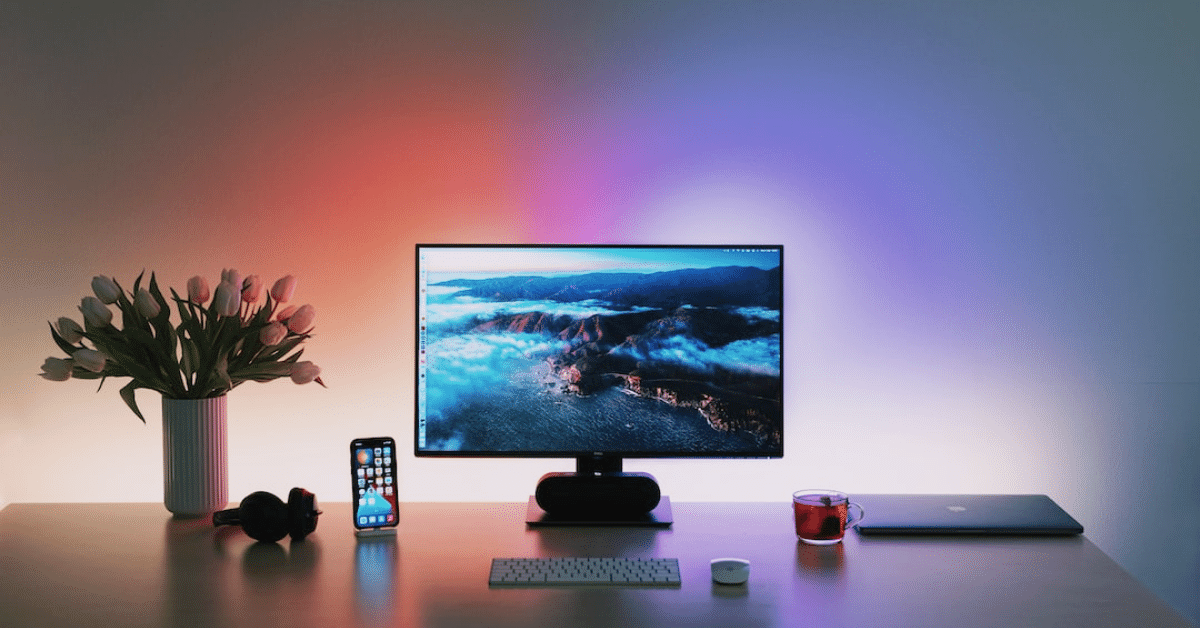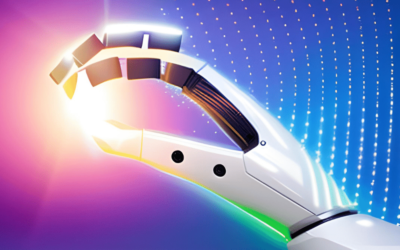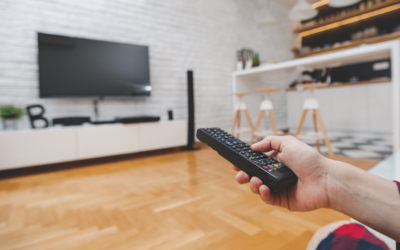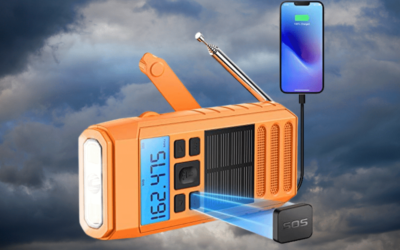Are you a gaming enthusiast looking for the perfect monitor size? Have you been trying to find the right balance between cost and quality? If your answer is yes, you’ve come to the right place! In this ultimate guide, we’ll help you find the best monitor size for gaming that meets your needs and budget. We’ll review all the factors you need to consider, from viewing distance and gaming experience to understanding different features of different monitor sizes. Let’s get started!
Finding the Right Monitor Size for Gaming
If you’re an avid gamer, then you know there’s nothing worse than having a gaming experience that’s hindered by an inadequate monitor size. One of the most common complaints from gamers is that their monitor is too small and causes them to lose out on important details that can make a big difference in the outcome of the game.
Fortunately, the technology of today has given us a vast array of monitor sizes to choose from. But the problem is, how do you choose the right size monitor for your gaming needs? Do you go smaller for better portability and a lower price tag, or do you go bigger to get the most out of your gaming experience? The truth is, there’s no one-size-fits all solution, but there are a few key factors to consider when choosing the best monitor size for gaming.
First, you’ll want to consider the type of gaming you do most often. This will help you determine the ideal screen size that will give you the best possible gaming experience. If you’re an avid first-person shooter fan, then you’ll want a larger monitor since you’ll need to see more of the environment around you. But if you prefer strategy or massively multiplayer online role-playing games, then you might be able to get away with a smaller monitor.
Next, you’ll want to consider the resolution of the monitor. This is important because the higher the resolution, the better the picture quality will be. High resolutions allow you to see more details, which can give you an advantage in certain types of games. Not only that, but higher resolutions can also help improve your overall gaming experience by making it more immersive and realistic.
Last but not least, you’ll want to consider your budget. Monitor sizes can range wildly in price depending on their features and size. The larger the screen size, the more expensive it will be, so it’s important to find a monitor that fits within your budget without sacrificing too much quality.
In the end, choosing the right monitor size for your gaming needs will come down to personal preference. But by considering the type of gaming you do, the resolution, and your budget, you can find the perfect monitor size to take your gaming experience to the next level.
Understanding the gaming experience
When you’re gaming, the size of your monitor is a key element of your gaming experience. A large monitor can provide more screen real estate so you can take in more of the action at once, while a small monitor can provide you with faster response times, making it easier to react faster to game changes.
It’s important to understand the different monitor sizes and how they affect your gaming experience. Luckily for you, we’ve put together a guide to help you find the best monitor size for your gaming setup.
First, consider how much space you have. If you’re short on space, you’ll likely want to go with a smaller monitor. With a smaller monitor, you’ll have a smaller view of the game, so you’ll need to make sure you have the right graphics card to handle the reduction in resolution.
On the other hand, if you have plenty of room, then you can opt for a larger monitor. With a larger monitor, you’ll get a larger viewing area and can enjoy all the graphics and visuals of the game at once. However, with a larger monitor, you’ll need to make sure that you’re able to use the higher-end graphics cards to take advantage of the larger resolution.
You should also consider how you’ll be using the monitor. If you predominantly play fast-paced games like first-person shooter games, then you’ll want to go for a smaller monitor as it will give you faster response times. If you’re more focused on strategy games or RPGs, then a larger monitor will give you more room to take in the game’s visuals.
Finally, consider your budget. If you’re on a tight budget, then you may want to stick to a smaller monitor. If you’re willing to splurge, then you can opt for a bigger monitor and all the bells and whistles that come with it.
No matter what monitor size you choose, remember to consider how it will affect your gaming experience. With the right monitor size, you can get the most out of your gaming setup and enjoy gaming for hours.
Different Features of Different Monitor Sizes
When it comes to finding the best monitor size for gaming, there is no one-size-fits-all answer. Different monitor sizes offer different features and advantages, and it’s up to you to determine which size is best for you and your gaming needs.
For starters, the most popular monitor size for gaming is 24 inches. This is a great size for gamers that want a traditional gaming experience. The 24 inch monitors offer plenty of screen real estate to game on and they also come with some great features such as increased refresh rates and minimum input lag, making them great for those who are serious about competitive gaming.
If you’re looking for an even bigger screen size, you may want to consider a 27-inch monitor. This is an ideal monitor size for those who often play games that require precise aim or precision movements. The increased screen size offers a more immersive experience, allowing you to really get lost in the game. 27 inch monitors also offer higher resolutions, improved response times, and improved color accuracy, making them great for gaming.
Finally, for those who want the biggest gaming experience possible, there are a variety of ultra-wide monitors available. Ultra-wide monitors offer a massive screen size that ranges from 34 inches to 49 inches. This can simulate the experience of a multi-monitor setup without the need for multiple monitors. Aside from the massive screen size, ultra-wide monitors also offer features such as higher resolutions and wider field-of-view, making them ideal for those who want to get the most out of their gaming experience.
No matter which monitor size you choose, it’s important to remember that all of these sizes offer different features that are ideal for different types of gamers. To determine which monitor size is right for you, consider your gaming needs and preferences and choose accordingly.
Cost Considerations
When it comes to finding the best monitor size for gaming, cost is likely to be a factor. After all, the bigger the monitor, the bigger the price tag. But don’t let this put you off – you can find some great deals if you shop around and compare prices. Just remember that the larger the monitor, the more you’ll be paying.
For budget-minded gamers, a small 20-inch monitor should be a good starting point. Most monitors of this size will cost under $200 and may still offer features such as anti-glare and adjustable settings. If you’re looking for something a bit bigger, 27 or 32 inches will cost a bit more, but you may still find a great deal.
If price is no issue, then you can go all out and get a huge, curved monitor. These monitors range from 34 to 49 inches and come in a variety of resolutions and resolutions. Prices for these models can range from about $700 to $3,000 and up, so you’ll want to do some comparison shopping here and find the best deal for your budget.
At the end of the day, your budget and preferences will determine the size and cost you’re willing to pay. So make sure you do your due diligence and invest in the best monitor size for gaming that fits your budget.
Struggling to Find the Perfect Monitor Size?
Finding the perfect monitor size for gaming can be a daunting task, especially if you’re not sure where to begin. With the sheer number of options available today, it’s hard to know what will work best for your needs.
We’ve put together this ultimate guide to help you find the best monitor size for gaming. From considering your budget to understanding the size and resolution options, here’s everything you need to know.
First things first, decide on a budget. Monitor prices can range from a few hundred dollars to more than a thousand. This can vary depending on screen size, resolution, refresh rate, and other features. Unless you have an unlimited budget, it’s important to find a monitor that fits your budget and still meets your needs.
Once you have your budget in mind, consider what you’re going to be using your monitor for. For example, if you’re a casual gamer, you may not need a high-end monitor with 4K resolution or a high refresh rate. Knowing what your gaming needs are can help you narrow down the number of monitors to consider.
The next step is to understand the size and resolution options. Monitor sizes range from the small 18.5 inch variety to large 32 inch options. For gaming, it’s best to look for monitors that are 24 inch or larger.
When it comes to resolution, you’ll want to look for a monitor that supports at least Full HD (1080p). If you’re willing to invest more, you can get a monitor that supports higher resolutions like 4K (2160p). Higher resolutions will result in clearer images, but make sure your video card is compatible before investing in a 4K monitor.
Lastly, consider the refresh rate. The refresh rate tells you how many times per second the monitor can refresh the image. For gaming, you’ll want to look for monitors with higher refresh rates of at least 144Hz. Higher refresh rates will result in smoother gameplay, but make sure your computer can handle it.
Finding the right monitor size for gaming doesn’t have to be a struggle. By considering your budget, gaming needs, size and resolution options, and refresh rates, you should be able to find the perfect monitor for your gaming setup.
Determining the Viewing Distance
When it comes to finding the best monitor size for gaming, the viewing distance is a key factor you need to consider. Before you buy a new monitor, it’s best to figure out how far away you plan to be sitting when you’re gaming. This is essential because the wrong viewing distance can lead to eye strain and fatigue.
On the flip side, if you choose a monitor size that’s too large, you may be too close to the screen and not benefit from a wide field of view. So, how do you determine the ideal viewing distance?
Well, the rule of thumb is that you should sit at a distance equal to three times the monitor’s diagonal length. This means that for a 24-inch monitor, you should sit at least 72 inches (6 feet) away from the screen. For a 27-inch display, you should sit at least 81 inches (6.8 feet) away from the screen. Of course, you can always adjust the distance to your comfort level, but it’s best to stay as close to the recommended viewing distance as possible.
Another helpful tip is to check the monitor’s specs for the optimal viewing angle. This can be especially important if you plan to game with a group of friends. The angles provided in the specs will let you know how far the viewing distance should be to enjoy the most comfortable experience.
Keep in mind that the viewing distance is not the only factor you need to consider when selecting a monitor size. It’s important to think about the viewing angle, the resolution, and the aspect ratio as well. However, if you know the viewing distance that’s ideal for you, then you’ll be one step closer to finding the perfect monitor for your gaming needs.
Ensuring a Quality Gaming Experience
When it comes to gaming, one of the most important factors in having an enjoyable experience is the monitor size. It’s important to consider the size of the display when choosing a monitor, as the right size can greatly impact the gaming experience. When it comes to finding the best monitor size for gaming, there are a few key factors to consider.
First and foremost, consider the resolution of the games you’ll be playing. A low resolution display will look fuzzy and won’t provide a great gaming experience. If you’re going to be playing games on a large display, opt for a monitor with at least 1080p resolution. The resolution of the display will also determine the size of the monitor you should get. A larger display will require a larger monitor to ensure the best gaming experience.
Second, think about the type of games you’ll be playing. If you’re planning to use your monitor mainly for first-person shooters, a smaller monitor should be sufficient. However, if you’re planning to play open-world games like Grand Theft Auto V or The Witcher 3, a larger monitor with a higher resolution is recommended.
Finally, consider the size of your graphics card. The graphics card impacts the performance of the games you’ll be playing, so if you want to get the most out of your gaming experience, make sure to opt for a monitor that’s compatible with your graphics card. This will ensure that you can run games at a higher resolution, as well as enjoy more detailed graphics and smoother gameplay.
When it comes to finding the best monitor size for gaming, it’s important to consider the resolution of the games you’ll be playing, the type of games you’ll be playing, and the size of your graphics card. As long as you keep these key factors in mind, you should be able to find the best monitor size for your gaming needs.
Finding the Best Monitor Size For Gaming
If you’re a serious gamer, it’s important to have the right monitor size to maximize your performance. But how do you know what size is best for your gaming setup? Fortunately, we’ve got the ultimate guide to help you find the perfect monitor size for your gaming needs.
First, you’ll want to consider the size of your desk space. If you have a smaller space, then a smaller size monitor can be more effective. However, if you have plenty of room, then you can opt for a bigger size monitor. Generally speaking, a monitor that’s 24-27 inches is ideal. Anything bigger than that might be too big for a smaller desk.
Second, consider the way you use your monitor. Are you a fan of single-player games where you need to stay focused on a single element? If so, then a smaller monitor might be best. On the other hand, if you’re a fan of multiplayer games that require you to multitask, then you’ll want a larger size monitor.
Finally, keep in mind the type of graphics card you’re using. If your graphics card can handle it, then a full HD or Ultra HD resolution can give you better detail and color accuracy. However, if your graphics card isn’t that powerful, then a lower resolution can still give you satisfactory results.
Ultimately, there’s no one-size-fits-all solution when it comes to finding the best monitor size for gaming. However, with a little bit of research and consideration, you can find the right size monitor that suits your gaming needs. So don’t be afraid to experiment with different monitor sizes until you find the perfect fit.
Knowing your ideal monitor size
If you’re looking to find the perfect monitor size for gaming, you’re likely to be overwhelmed with all the different options available. It can be hard to know where to start, let alone where to finish! But don’t worry, we’re here to help. When it comes to selecting a gaming monitor size, there are two things you should take into account: the size of your room and your preferences.
If you’re limited on space, then you’ll need to look for smaller monitors. This means you can stick to a traditional 16:9 aspect ratio, or if you want something bigger, you can opt for an ultrawide monitor or dual screens. Ultrawide monitors offer a 21:9 aspect ratio, giving you more horizontal space than a traditional 16:9. And, if you really want to go all out, you can set up two different monitors, providing you with a full field of vision and a truly immersive gaming experience.
On the other hand, if you have the space (and the budget!) to spare, then you can opt for a larger monitor. Larger monitors usually come with a higher resolution, meaning you’ll be able to get a more detailed image quality. You can also choose from curved monitors and gaming monitors with higher refresh rates.
It’s also important to think about the type of games you’re playing. For example, if you’re playing a lot of first-person shooters, then you’ll want something with a higher refresh rate, as this will give you a smoother experience. However, if you’re playing strategy games, then you may find that a higher resolution is more important.
Ultimately, the best monitor size for gaming comes down to your own personal preference. The key is to find something that works for you and meets your needs. With so many options out there, you’re sure to find something that fits your style. So take the time to do a little research and make sure you get the perfect gaming monitor for you.
Choosing a gaming-friendly monitor
Are you in the market for a gaming-friendly monitor? If so, you’ll want to make sure that you choose a monitor that fits your gaming needs. There are a few key things to consider when choosing a gaming-friendly monitor, such as screen size, resolution, refresh rate, response time, and more.
When it comes to screen size, you want to make sure that your monitor is large enough to comfortably display all the action, while also being small enough to fit your budget and space. Monitors range from as small as 15” up to 32” and beyond, so you have a lot of options to choose from.
Next, look at the monitor’s resolution. Resolution is measured in pixels, and you want to make sure that your monitor has enough pixels to get the most out of games. While 1080p (1920 x 1080) is currently the most common resolution for gaming, more and more gamers are turning to the slightly higher resolution 1440p (2560 x 1440).
When it comes to refresh rate, the higher the refresh rate the smoother the image on your monitor. Generally speaking, a high refresh rate is desirable for gamers, with many gaming monitors offering refresh rates of 144-240 Hz. However, keep in mind that these speeds are only useful if your graphics card is capable of pushing out the same number of frames per second.
Your monitor’s response time is also an important factor to consider. Response time measures how quickly a pixel can change from one color to another, and in gaming you want a low response time of 4ms or lower. Anything higher than 4ms can lead to ghosting or input lag, so make sure the response time of your monitor is up to snuff.
Finally, consider the type of panel your monitor uses. There are three main types – TN, VA and IPS. TN (Twisted Nematic) panels are typically cheaper, but offer less vibrant colors and narrower viewing angles. VA (Vertical Alignment) panels offer better color accuracy and wider viewing angles, while IPS (In-Plane Switching) panels offer the best of both worlds with excellent color accuracy and wide viewing angles.
With all of these considerations in mind, you should be able to find a monitor that offers the perfect combination of features to fit your gaming needs.
Researching monitor specs and features
Finding the perfect monitor for your gaming setup can be a daunting task. Even if you know the size and resolution you’re looking for, there’s still a host of other features and specs to consider. That’s why researching monitor specs and features is key when your search for the ultimate monitor size for gaming.
Let’s get started with the basics. You’ll obviously want to consider the size and resolution of the monitor. You’ll also want to look at what kind of panel the monitor uses. There are several kinds of panels including TN, IPS, and VA panels that work differently. TN panels are the cheapest and most common, while IPS panels offer the best viewing angles, color accuracy, and quality. VA panels are somewhere in between.
Next, consider the refresh rate. A higher refresh rate means a smoother gaming experience, but keep in mind that you’ll also need a powerful graphics card to support a higher refresh rate. You should also look into response time, which impacts how quickly the monitor can react to changes on the screen.
Finally, you may want to consider the monitor’s other features. Some monitors have additional ports and connections, allowing you to connect various devices to your gaming setup. Other monitors may have things like adjustable stands, built-in speakers, and more.
Ultimately, the perfect monitor size and features for gaming depend on your own needs and preferences. Take the time to research monitor specs and features, and you’ll find the perfect monitor for your gaming setup.
Conclusion
Well there you have it – the definitive guide to finding the best monitor size for gaming. We’ve discussed why size matters when it comes to gaming and highlighted different features of different sizes. We’ve also covered cost considerations and reminded you that the best monitor size for gaming is the one that fits your gaming needs, budget and lifestyle. With all of this information in mind, you should have no trouble finding the perfect monitor size for your gaming experience. Whether you’re an avid gamer or a casual one, we hope this guide has helped you understand the importance of finding the right monitor size and also helped you determine which size best fits your gaming needs. Now go forth, gamers, and have a blast!
Top 5 Gaming Monitors on the Market in 2025
- 240Hz Refresh Rate: Stay above the pack with 240Hz, giving you an edge in performance as frames transition instantly.Specific uses for product – Gaming
- 23.8″ Full HD (1920 x 1080) Widescreen VA Monitor | AMD FreeSync Premium Technology
- Immersive Visuals: Enjoy a captivating viewing experience with the 27-inch Full HD IPS panel that delivers vibrant colors and wide viewing angles.
- ULTRA-FAST GAMING: Experience gaming at a new level with a 280Hz refresh rate and 0.3ms response time, delivering unparalleled smoothness and precision.
- 200Hz PC Monitor – LXZ 24.5-inch gaming monitor combines high resolution with an impressive 200Hz refresh rate. Enhanced by freesync technology, it effectively eliminates tearing and freezing, ensuring crystal-clear video playback for an exceptional gaming experience








